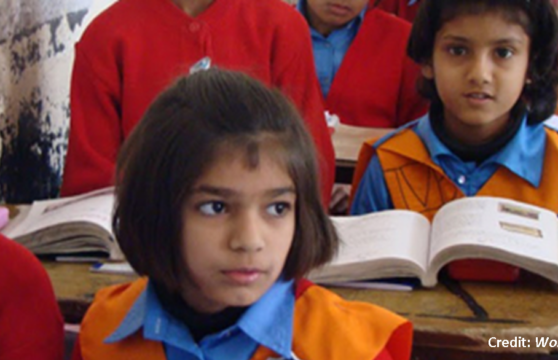How Important is Chinese Lending to Latin America?
Chinese lending to Latin America and the Caribbean hit an all-time high of $37 billion in 2010.
This blog refers to the “Thriving in San Marcos” initiative carried out in partnership with Cities Alliance. and the Swiss Agency for Development and Cooperation.
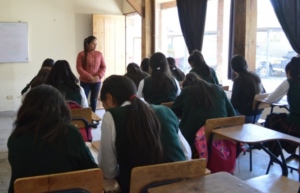
“Thriving in San Marcos” promotes a skilled, professional workforce among future generations in the MANCUERNA region of Guatemala through our B’etil Diploma, an extracurricular education program with a pre-professional focus in collaboration with the San Marcos Department of Education and local schools.
In 2020, nearly 1,000 middle and high school youth participated in our B’etil Diploma, half of which were girls and young women.
“The majority of students, especially in the highlands of San Marcos, have the idea that after they finish middle school, or even elementary school, they will migrate to the United States. This is because many families in our area plant corn crops and the oversaturation of agriculture in the local market makes it hard for the families to earn a living wage. The contingency created by the pandemic also increased their desire to emigrate due to the fact that many students couldn’t work or go to school.” – Kimberly Garcia, B’etil instructor, middle school teacher, and university professor in San Marcos
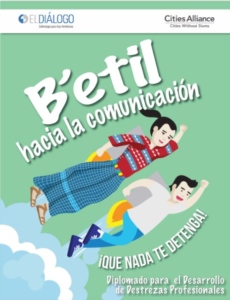
According to World Bank Education Statistics, only 56 percent of Guatemalan youth who are of-age for lower secondary school have completed this education, which is indicative of the challenges for youth to study past primary school. Expanding access to after-school programs strengthens curricular content and expands learning outcomes for youth in school and in the professional field. Extracurricular education in areas where migration is common promotes higher rates of school retention, raises levels of reading and math comprehension, and motivates students to continue their studies.
Youth may feel motivated to migrate as an employment strategy due to a saturated local market and lack of employment options.
Educational outcomes are also low: according to reports, only 27 percent of secondary school graduates met national standards in reading, and 8 percent reached national standards in mathematics. Educational outcomes are also lower for rural students, indigenous students, and female students. These educational and professional realities are closely linked to development and future migration.
The “Thriving in San Marcos” Extracurricular Education component helps Guatemala train a new generation of workers toward a knowledge-based economy in which emigration is not the only option for youth.
Extracurricular classes are shaped around the B’etil curriculum, which was created to reinforce skills in math, communications, and writing through interactive activities with real-world applications.
The curriculum also includes an entrepreneurial component in which youth gain pre-professional skills and explore future employment opportunities. Participating students of the B’etil Diploma graduate with a certificate of completion after having presented a model for their own business.
Previous work with the B’etil Diploma indicates that B’etil successfully promotes inclusion, as girls completed the Diploma at a higher rate than their male counterparts, especially Mayan girls.
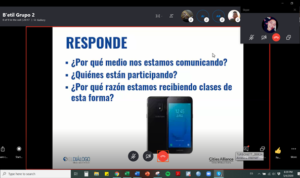
Meet Rocael, a high school student
“I live in La Reforma, San Marcos. La Reforma has a lot of people who work hard and keep to themselves. School is important to me because I want to be able to succeed in life and get ahead. I know life can be hard but I want a chance to have a better life in the future. My parents thought the extracurricular program was a good opportunity to help me with my studies and they were very happy to support me.”
“In school, I enjoy my computer technologies class. My brother graduated with a certificate in that as well so I feel like he’s influenced me in that sense. I also like to play soccer.”
Meet Claudia, a high school student
“I live in Candelaria, a small village in San Marcos. Even though it’s small it has a lot of hardworking people. When I’m not in school I work taking care of kids or cleaning homes, but in my free time, I like to play soccer. I also really enjoy my specialized mechanics class.”
“Education is fundamental if I want to have a good life and a career. When I heard about the B’etil program I jumped at the chance to keep learning and reinforce what I already know. I asked my parents for permission and they were happy to let me do it. They said, ‘Very good Claudia, we should take advantage of opportunities like these’.”
The shift to virtual learning
Three teachers, trained by The Dialogue, taught the B’etil modules on mathematics, communications, and entrepreneurship. Due to school closures during the Covid-19 pandemic, the students only covered the math module in the classroom. The rest of the material was covered through virtual classes.
Our students share their experiences below:
“I would struggle with math. I felt like I would learn something one year and then the next year I would forget it. But when we started covering the math during the B’etil class, that’s when I felt like I started to piece together what I remembered and what I had forgotten. I liked my teacher because she was nice and would guide us through the activities. I think my favorite book was the communications book because it was easy for me to understand.”
“I really enjoyed the first months of the after-school program. It was very interactive and I liked to learn with my friends. We covered a part of the B’etil math workbook and it helped make my math skills stronger.”
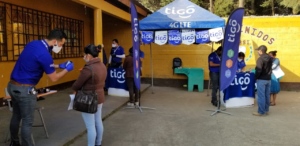
Many students throughout Guatemala saw their education interrupted when schools closed in mid-March 2020. The B’etil extracurricular program, however, was quickly adapted to a virtual setting. Some students remained in the program; others were not able to due to weak internet signals, work responsibilities, and other factors.
“At first, truthfully, I was happy that schools were going to close. We were told it would only be for 20 days and I saw it as a vacation. But as the pandemic went on, I realized that wasn’t going to be the case. I was saddened that school would be online. Virtual learning was something very new to me and I wasn’t excited. One of my closest friends decided not to continue. But I thought to myself: ‘I need to take advantage of this opportunity and reinforce the concepts I lost.’ So, I stayed. The classes were in the afternoon, around 6 pm, after we all came home from work and had to stay inside because of the curfew. But it gave us time to learn. In the end, I know I made the right decision.”
Building life skills
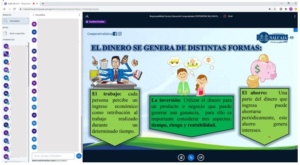
The Dialogue partnered with financial and government institutions to offer students life skills workshops. One of those institutions was MICOOPE Salcajá, the Dialogue’s financial education partner, and the credit union hosted a virtual financial education for students.
Rocael participated in this forum. “They taught us how to manage our income and savings. Above all, knowing how to administer money is important. Now, I want to teach people the same thing.”
“B’etil helped reinforce concepts that I had forgotten. If I get the chance to, I want to go to a university and get a degree in accounting. That way I can teach people how to better administer their money. But I’m keeping my options open. I would also like to be an engineer or pursue something in the technical field. Thank you for this program and to our teachers who taught us valuable lessons.”
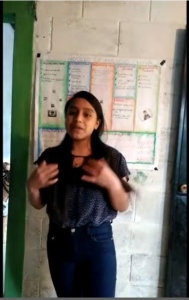
The B’etil Diploma taught students how to start financially viable businesses as a way to mitigate the informal and unprepared entrepreneurship that populate Guatemala’s business sector. Students presented their final business proposals virtually. One pair of sisters immediately went on to implement their business idea for a mobile food operation.
“The students absorbed what they learned and were able to grasp the reason behind the entrepreneurial component. As an educator, it gave me a lot of satisfaction to see that some of those same students started their own small businesses and continued to build them.” -Kimberly Garcia, B’etil instructor
“Education is important for my community because it helps us overcome the struggles that come with a hard life in order for more people to have a chance to pursue a career. Education helps instill a sense of order and respect within our community. Thank you for the opportunity to have this program at our school and for the good lessons you taught us.” – Claudia
About the "Thriving in San Marcos" initiative
Thriving through Financial Inclusion in Guatemala
Thriving through Business Coaching in Guatemala
Rethinking Remittances for Housing and Urban Development in Guatemala
Opportunities for My Community
Addressing the Root Causes of Migration from Central America
Chinese lending to Latin America and the Caribbean hit an all-time high of $37 billion in 2010.
Venezuelan president Nicolas Maduro left China last month with a supposed show of support from the Chinese government.
Why Pakistan represents “the biggest education reform challenge” and 12 lessons that are applicable to reform efforts around the globe.
